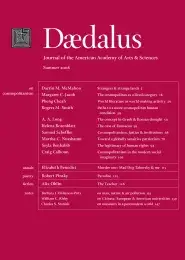Cosmopolitanism in the modern social imaginary
One day in the early 1980s, I was riding in the backseat of an old Land Rover through the desert southwest of Khartoum. There was no road, but the landscape, mostly flat, was marked by the occasional saint’s tomb distinctive to Sudanese Islam. My companions and I hadn’t seen another vehicle for a couple of hours when one appeared as a tiny dot on the horizon. It was headed our way, and as is typical both cars slowed down to see who else might be passing through the seemingly empty desert. My curiosity was mild–I had been in the Sudan only a month or two and didn’t think I’d know anyone–until I realized that in fact I did know the face looking back at me through the window of the other Land Rover. It was my friend Vaughan, an Oxford classmate from years earlier. We both shouted and our cars stopped.
The reunion was a pleasure. It seemed very old-school, and we laughed about how many Oxford classmates of different generations had run into each other in the Sudan over the last 150 years. More than a few, I’m sure, each taking pleasure in his or her cosmopolitanism (and more than a few in colonialism, too).
Vaughan and I caught up on families and careers and work on multiple continents. Being citizens of the world was going well for both of us. Vaughan was an attorney by the time of our reconnection, working for Chevron, which was developing oil fields near Bentiu in the Southern Sudan. A university professor supported by the Kellogg Foundation, I had come to Sudan on the heels of traveling through China and was teaching at the University of Khartoum while my wife Pam worked for the U.S. State Department’s Office of Refugee Affairs. She would go on to a career in the United Nations. Vaughan’s wife Mary became a photographer and founded a support group for expatriates.
Our little group exemplified much of the cosmopolitanism that was sweeping up a wide variety of young professionals and activists in a global network of relief work, diplomacy, corporate investments, journalism, and advocacy. “Small world!” at least one of us exclaimed tritely. Indeed it is for those equipped to navigate as we were. I’m sure it didn’t seem small in the same way for the Eritrean refugees seeking shelter in Sudan from fighting to the east or, in some cases, being resettled in Europe or America.
. . .
